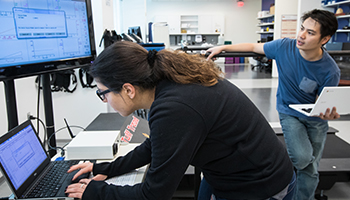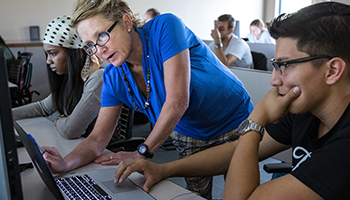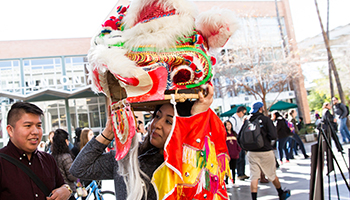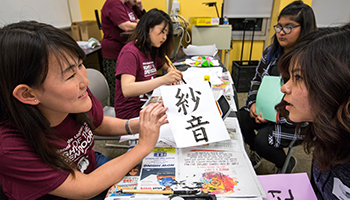
The Doctor of Philosophy program in comparative culture and language offers professional training that is linguistically well-grounded, historically and culturally informed, and methodologically transdisciplinary through courses and supervision of research. Central to the program is the critical inquiry of primary texts, media and cultural expressions, aiming at an original understanding of cultures and social groups in their formations, interactions and transformations throughout history.This program is attentive to the various roles of language in societies and in the different perspectives through which language can be studied --- among other aspects, its variations, transformations, hybridizations and processes of acquisition. The doctorate in comparative culture and language focuses particularly on research questions and themes that cannot be fully explored within the traditional disciplinary boundaries; instead, it fosters dynamic collaboration across disciplines to engage in the production of knowledge that is crucial to understanding transnational and transcultural interactions across time and space.The program offers the opportunity to pursue, with the guidance of faculty who are comparatists and specialists in particular fields, transdisciplinary research and teaching. In consultation with their advisor, students do their coursework in a primary and a secondary area of emphasis. Both areas are organized around interdisciplinary study and research in more than one language; students are expected to have advanced proficiency in one language other than English (this is the language of primary emphasis) and at least reading knowledge in a second language other than English (language of secondary emphasis).For example, a student might choose to study medieval European theater for the primary area of emphasis and medieval book culture for the secondary area. For the primary area of emphasis, the student could demonstrate advanced proficiency in one European language, such as French or Italian, depending on the requirements of their research. For the second language other than English, the student would have at least reading knowledge of, say, Latin. Another example: The student chooses to study the representation of the migrant experience in contemporary East Asian cultures as the primary area of emphasis, and film and media studies as the secondary area. Their primary area of emphasis would require advanced proficiency in a certain East Asian language, such as Chinese, Japanese or Korean, and the secondary area reading knowledge of one more non-English language pertinent to their comparative research.Faculty members are drawn from the School of International Letters and Cultures and other programs in the humanities and social sciences across Arizona State University.

Do you want something truly new to go with your humanities degree? In this program, you'll receive coaching in the latest and most innovative digital tools for humanities research. If you're looking to stand out from the crowd of humanities graduates, digital humanities may be the answer.

Expand your global impact with a deep understanding of literature, language, teaching methods and cultural expressions from Spain, Latin America, the U.S. and beyond. In this master's degree program, you'll gain insights that support academic, industry, legal and government careers, and prepare for doctoral studies.

Translation studies is a dynamic, emerging discipline that engages various theoretical and practical issues. Central to the present and future directions of the humanities, as well as their history, translation studies is one of the most globally relevant fields in today's world.






